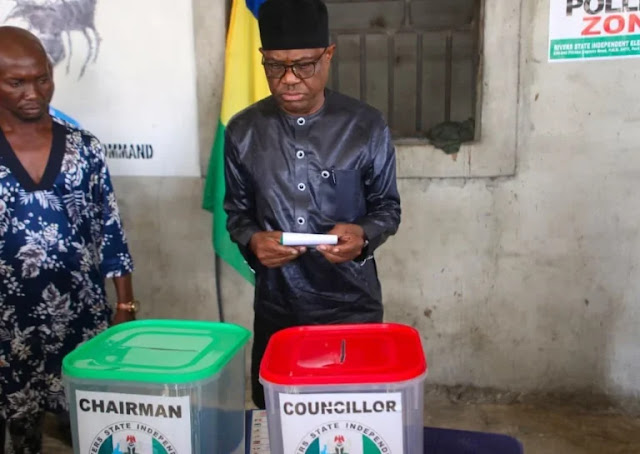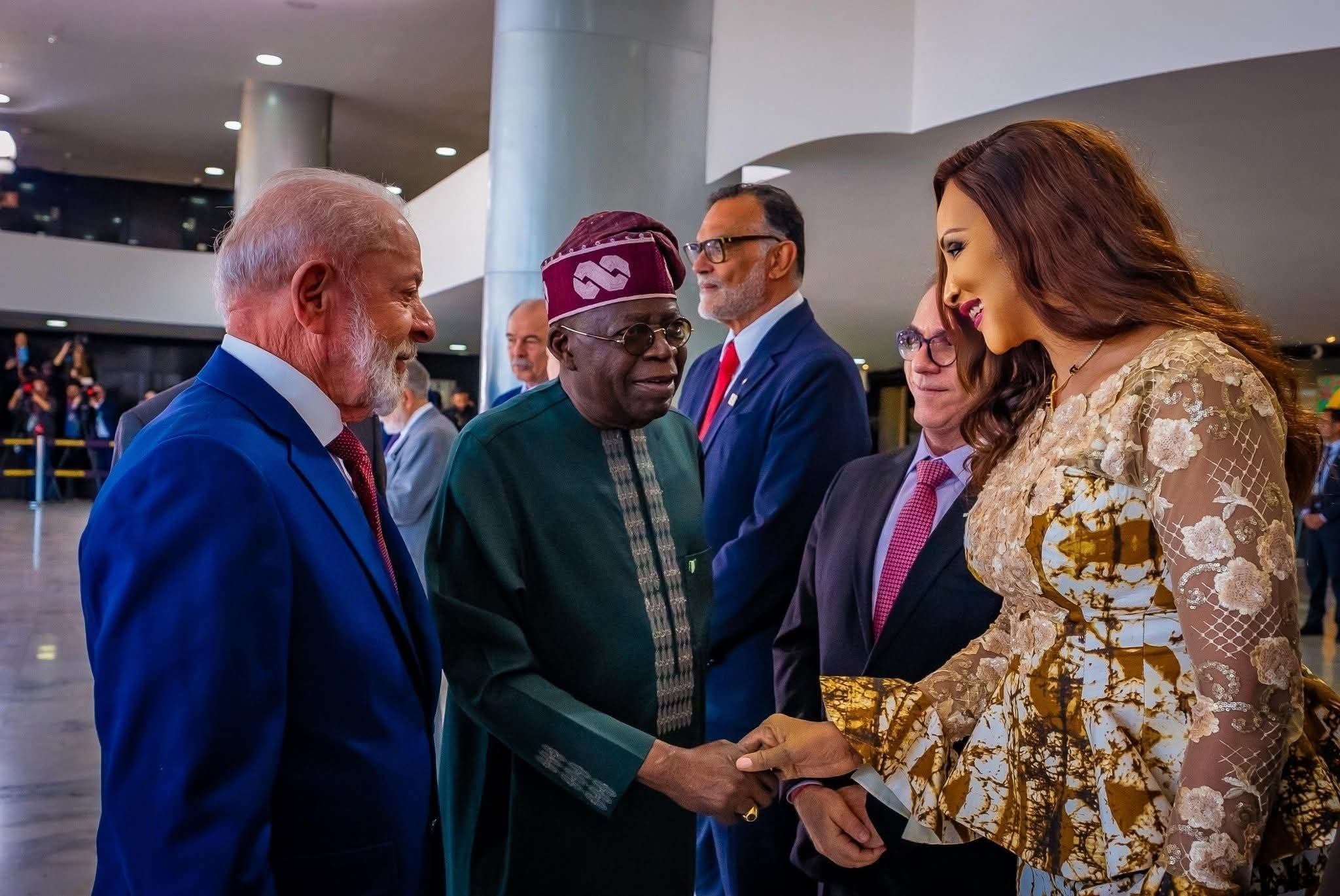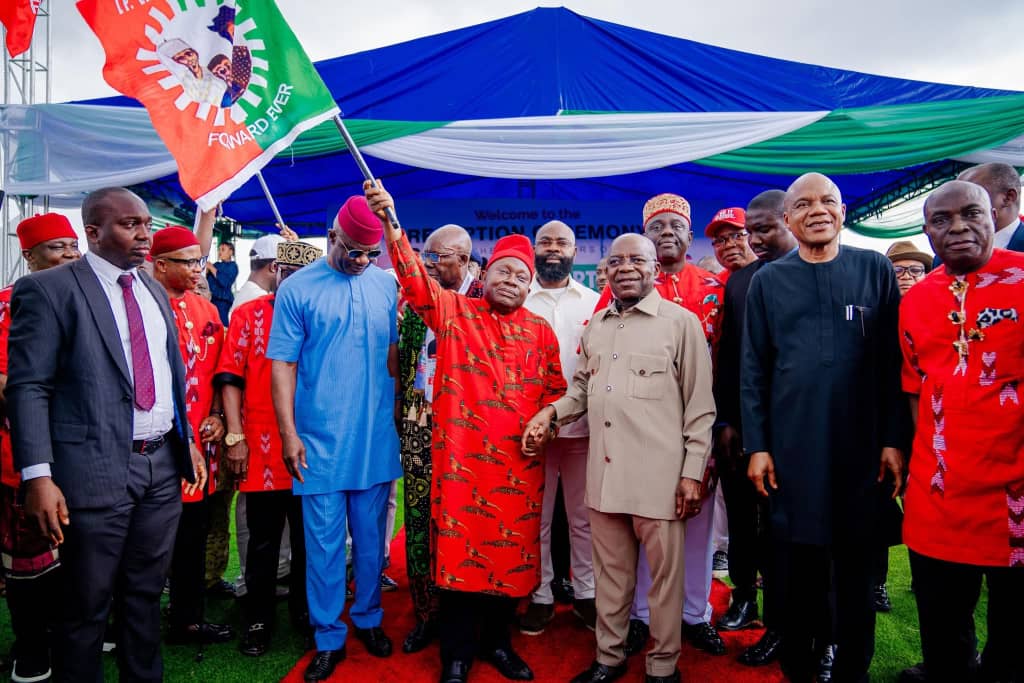In a significant stride toward strengthening grassroots governance in Rivers State, Nigeria, the Minister of the Federal Capital Territory, Nyesom Wike, has expressed his satisfaction with the conduct of the ongoing local government elections. Speaking on Saturday after casting his vote at Polling Unit 007, Ward 9, in the Rumuepirikom community of Obio/Akpor Local Government Area (LGA), Wike commended the peaceful and transparent nature of the electoral process. His remarks highlight the importance of the elections in ensuring stable and constitutional governance at the local level, aligning with recent judicial and political developments in Nigeria. This comprehensive coverage explores the context, significance, and implications of the elections, as well as Wike’s role in advocating for grassroots development.
Context of the Local Government Elections
The local government elections in Rivers State mark a pivotal moment in Nigeria’s political landscape, particularly following a landmark Supreme Court ruling that declared caretaker committees in local government areas unconstitutional. The ruling, which emphasized the need for democratically elected officials to manage local governments, has compelled states across the country to conduct elections to comply with constitutional provisions. For Rivers State, the elections represent an opportunity to restore legitimate governance at the grassroots level, ensuring that local governments can access federal funding and operate effectively.
The Supreme Court’s decision was a response to the widespread practice of appointing caretaker committees to manage local government affairs, often as a means of political control by state governors. These committees, lacking democratic legitimacy, were deemed unconstitutional, as they undermined the principles of local governance enshrined in Nigeria’s 1999 Constitution. The ruling mandated that local governments must be led by elected officials to qualify for direct funding from the Federation Account, a critical source of revenue for grassroots development.
Against this backdrop, the Rivers State Independent Electoral Commission (RSIEC) organized the local government elections to elect chairpersons and councilors across the state’s 23 LGAs. The elections were held under intense scrutiny, given the political dynamics in Rivers State, which has experienced tensions between various political factions in recent years. The successful conduct of the polls, therefore, is a testament to the state’s commitment to upholding the rule of law and fostering democratic governance.
Wike’s Endorsement of the Electoral Process
Nyesom Wike, a prominent political figure in Rivers State and former governor of the state from 2015 to 2023, has been a vocal advocate for the restoration of democratic governance at the local level. As the current Minister of the Federal Capital Territory, Wike’s influence extends beyond Rivers State, but his deep ties to his home state make his endorsement of the elections particularly significant. After casting his vote in his Rumuepirikom community, Wike praised the electoral process, describing it as transparent, orderly, and legally sound.
Wike commended President Bola Tinubu for ensuring that the elections were held in line with constitutional requirements. “President Tinubu deserves credit for his commitment to upholding the rule of law and ensuring that local government elections are conducted across the country,” Wike stated. He emphasized that the president’s leadership was instrumental in creating an enabling environment for the polls, particularly in light of the Supreme Court’s ruling. Tinubu’s administration has prioritized strengthening Nigeria’s democratic institutions, and the conduct of local government elections is a critical component of this agenda.
Wike highlighted the importance of the elections in stabilizing governance at the grassroots level. “Since the Supreme Court ruled against caretaker committees in LGAs, if there are no elected people, funds will not come from the Federation Account to the local government accounts,” he explained. The absence of elected officials would effectively starve local governments of the resources needed to deliver essential services such as infrastructure, healthcare, and education. By conducting the elections, Rivers State is ensuring that its LGAs can access these funds and function effectively.
The Role of the Emergency Rule
Wike also addressed the context of the emergency rule in Rivers State, which was instituted following political instability in the state. The emergency rule, expected to be lifted by September 18, has temporarily altered the governance structure, with the state House of Assembly and the governor’s office affected. However, Wike expressed optimism that the successful conduct of the local government elections would pave the way for the restoration of full governance structures. “With the emergency rule expected to be lifted by September 18, and the governor and state House of Assembly restored, governance at the local level will be strengthened,” he noted.
The emergency rule, while a temporary measure, underscored the urgency of holding local government elections to ensure continuity and stability. Wike’s remarks suggest that the elections are not only a legal necessity but also a strategic step toward restoring normalcy in Rivers State’s political landscape. By electing chairpersons and councilors, the state is laying the foundation for effective grassroots governance, which will complement the restoration of the state’s legislative and executive functions.
Commendation for RSIEC and Voter Turnout
The Rivers State Independent Electoral Commission (RSIEC) played a pivotal role in organizing the elections, and Wike commended the commission for its professionalism and efficiency. RSIEC’s efforts ensured that the electoral process was well-coordinated, with polling units across the state adequately prepared to receive voters. The commission’s work was particularly notable given the logistical challenges of conducting elections in a state as diverse and politically complex as Rivers.
Wike also praised the residents of Rivers State for their enthusiastic participation in the elections. “You can see the large turnout in my community (Rumuepirikom). I have also received reports that voters came out en masse in other areas, especially rural communities,” he said. The high voter turnout, particularly in rural areas, reflects the significance of the elections to ordinary citizens who rely on local governments for basic services. For many residents, the opportunity to elect their representatives is a chance to influence the development of their communities and hold leaders accountable.
The large turnout also underscores the trust that citizens have in the electoral process. Wike noted that the elections were “known to law,” meaning they were conducted in accordance with legal and constitutional standards. This transparency and legitimacy are critical for ensuring that the results are accepted by all stakeholders, reducing the risk of post-election disputes.
Dismissal of Concerns About Validity
Addressing concerns that the elections could be invalidated, Wike was unequivocal in his confidence in the process. “Today we are holding an election that is known to law; people are coming out to cast their votes for whoever they want to represent them at the local government,” he stated. His remarks were aimed at dispelling fears that legal or political challenges could undermine the elections, as has happened in some parts of Nigeria in the past.
Wike’s confidence is rooted in the legal backing provided by the Supreme Court’s ruling and the transparent manner in which the elections were conducted. By adhering to constitutional provisions and ensuring a free and fair process, Rivers State has set a precedent for other states to follow. The minister’s dismissal of concerns about invalidation also reflects his belief that the elections will produce credible outcomes, with elected officials who are recognized by law and capable of delivering on their mandates.
The Significance of Local Government Elections
The local government elections in Rivers State are more than a procedural requirement; they are a critical step toward empowering communities and fostering development. Local governments in Nigeria are responsible for delivering essential services such as primary education, healthcare, sanitation, and rural infrastructure. However, the effectiveness of these services depends on the presence of elected officials who are accountable to the people.
Wike emphasized the importance of elected representatives in driving development at the grassroots level. “Elected representatives at the local level are essential for effective governance and development,” he said. Unlike caretaker committees, which are often appointed based on political loyalty, elected officials are chosen by the people and are therefore more likely to prioritize the needs of their constituents. This democratic accountability is crucial for ensuring that local governments deliver tangible benefits to their communities.
The elections also have economic implications, as Wike noted. With elected officials in place, local governments in Rivers State will be eligible to receive direct funding from the Federation Account. This funding is essential for implementing development projects, paying salaries, and addressing the needs of residents. By conducting the elections, Rivers State is ensuring that its LGAs can access these resources and operate as fully functional tiers of government.
Wike’s Call for Citizen Support
In his remarks, Wike urged citizens to support the electoral process and the newly elected officials. He emphasized that the success of local governance depends on the active participation of residents, who must hold their representatives accountable and contribute to community development. “I urge citizens to support the electoral process, as it is the foundation for effective governance,” he said.
Wike’s call for citizen support reflects his understanding of the interconnectedness of governance and public participation. While elected officials have a responsibility to deliver on their mandates, citizens also have a role to play in ensuring that their leaders remain responsive and accountable. By voting in large numbers, the people of Rivers State have demonstrated their commitment to this process, and Wike’s appeal is aimed at sustaining this momentum.
Broader Implications for Rivers State and Nigeria
The successful conduct of the local government elections in Rivers State has broader implications for Nigeria’s democratic and developmental trajectory. At the state level, the elections mark a return to constitutional governance, addressing the disruptions caused by the emergency rule and political tensions. By electing chairpersons and councilors, Rivers State is restoring stability and legitimacy to its local government system, paving the way for improved service delivery and development.
Nationally, the elections serve as a model for other states grappling with the implementation of the Supreme Court’s ruling. Many states have yet to conduct local government elections, and the success in Rivers State could inspire others to follow suit. The elections also reinforce the importance of judicial independence and the rule of law, as the Supreme Court’s ruling has compelled states to adhere to constitutional standards.
Furthermore, the elections highlight the role of strong leadership in advancing democratic governance. Wike’s vocal support for the process, combined with President Tinubu’s commitment to upholding the rule of law, demonstrates the power of political will in driving systemic change. As Nigeria continues to navigate its democratic journey, the Rivers State elections serve as a reminder of the importance of grassroots governance in achieving national development goals.
Challenges and Considerations
While the elections have been hailed as a success, they are not without challenges. The political dynamics in Rivers State, marked by rivalries and factionalism, could pose risks to the post-election environment. Ensuring that the results are accepted by all parties will be critical to maintaining peace and stability. Additionally, the newly elected officials will face the challenge of meeting the high expectations of their constituents, particularly in rural areas where infrastructure and services are often inadequate.
The transition from emergency rule to full governance also presents logistical and administrative challenges. The state government and RSIEC will need to work closely with the newly elected officials to ensure a smooth handover and effective implementation of their mandates. Furthermore, the success of the elections will depend on the ability of local governments to access and manage federal funds transparently and efficiently.
Conclusion
The local government elections in Rivers State represent a significant milestone in the state’s quest for stable and democratic governance. Nyesom Wike’s endorsement of the process underscores its importance in restoring constitutional order and empowering grassroots communities. By commending President Tinubu, RSIEC, and the people of Rivers State, Wike has highlighted the collective effort required to achieve this success.
The elections are a step toward ensuring that local governments in Rivers State can access federal funding, deliver essential services, and drive development. With the emergency rule set to be lifted and elected officials ready to assume office, the state is poised for a new era of grassroots governance. Wike’s optimism about the process, coupled with his call for citizen support, reflects a vision of inclusive and accountable governance that could serve as a model for Nigeria.
As Rivers State moves forward, the successful conduct of the local government elections will stand as a testament to the power of democracy to transform communities and deliver tangible benefits to citizens. By upholding the rule of law and fostering public participation, Rivers State is setting a precedent for other states to follow, paving the way for a more prosperous and equitable Nigeria.







